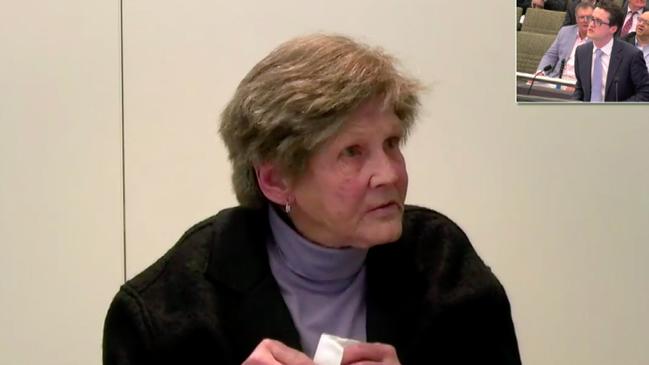More about pulling heartstrings than rationally examining bank practices

Yesterday’s banking royal commission heard from a pensioner who had gone guarantor for her daughter’s small business loan. In doing so she put her home on the line.
In what can only be described as a sad situation the small business obviously failed and the bank called in the guarantee, meaning that the pensioner lost ownership of her home. It should be noted that Legal Aid negotiated a settlement allowing the woman to have life tenancy in the home, only after which the bank will sell it to recoup the money it is rightfully owed.
Can someone tell me the bank’s failure in the above example please?
The pensioner claimed that she didn’t recall getting legal advice, but it turns out she did. The bank, on short notice, was able to produce evidence that she did. She also claimed that she thought the loan was only one third the size that it actually was. But she got independent legal advice, so frankly that’s hard to believe. Besides, she said she’d have done anything to help her daughter out.
For some reason the name of her daughter who put her in the position of guaranteeing a risky business loan hasn’t been named in the proceedings. Why does she deserve to have her identity protected?
Evidence such as that on display at the hearings yesterday is more about pulling on heart strings than rationally examining banking practices. If processes failed the pensioner, that’s one thing. Throw the book at the bank I say. If it was a loan she couldn’t fund, that’s wrong. But guaranteeing someone else’s loan doesn’t require repayments — it’s a decision to help another person get a loan, putting your asset on the line and taking the risk that it will never come to that.
As the pensioner noted, she would have done anything to help her daughter. Rooting out malpractice is why I supported a royal commission in the first place. And it’s worth noting that the independent Ombudsman ruled in the banks favour that proper due process was followed. Where is the malpractice in this case?
Perhaps people question the suitability of someone’s home being put on the line as a principle of what’s acceptable in a guarantee?
Which brings us back to the reality that if people don’t want parents to be in the line of fire to lose homes when going as guarantors for children either buying homes or starting up small businesses, it’s for governments to legislate accordingly.
But be very careful what you wish for.
Government can easily ban parents guaranteeing loans for children, but it will make it harder for first home buyers to enter the market. It will increase deposits and possibly drive up interest rates.
Or they can ban homes being put on the line to guarantee small business loans — but it’s already very hard to get a small business loan.
Does either major party want to make getting a business loan even harder? What effect will that have on the economy? Will the Liberal Party — the supposed party of small business — look at such a response? I doubt it.
Or we can just tut tut at the banks and expect them to write off loans which result in cases like this one — which is a one way path towards moral hazard and the end of personal responsibility. Expecting banks to wear the cost of decisions by customers to knowingly and with independent legal advice put their homes up as collateral to help their children is plain wrong.
Banks are probably already writing off many such loans, simply so they don’t have to put up with being painted as the bad guys for doing what any shareholder would expect, and what any guarantor (who is given independent legal advice on the risk they are taking) should expect if the person they support fails in their repayments.
It’s easy to get all outraged that someone loses their home when they go guarantor for a loan that goes bad. But what exactly is the alternative?
I reiterate — why on earth is the royal commission protecting the identity of the child who asked her pensioner mother to put her house on the line so she could dabble in small business? I would have never put my parents in that position and I suspect most readers wouldn’t either.
But apparently it’s the banks we should all blame.
Peter van Onselen is a professor at the University of Western Australia and Griffith University.
Disclosure: Peter van Onselen’s wife works at a section of Westpac not related to this story.





To join the conversation, please log in. Don't have an account? Register
Join the conversation, you are commenting as Logout